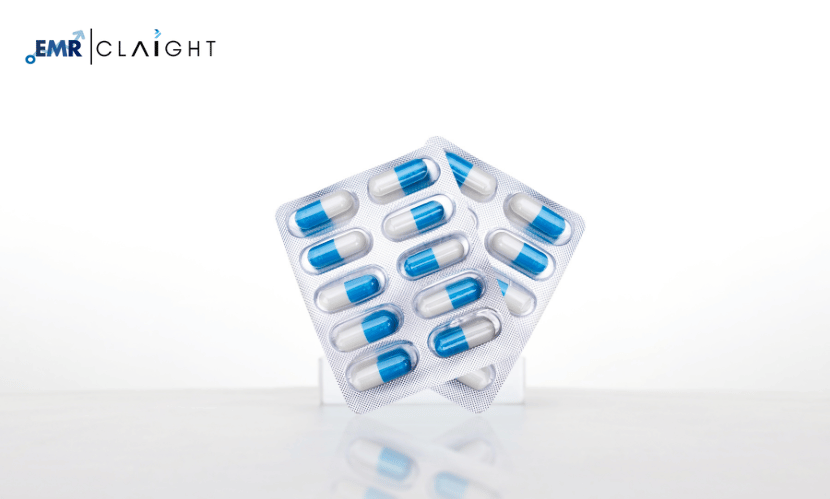Acyclovir Manufacturing Plant Project Report – Production Process, Market Insights, and Business Opportunities

Acyclovir is a widely used antiviral medication primarily prescribed for treating infections caused by the herpes simplex virus, including cold sores, genital herpes, and shingles. Its effectiveness in managing viral outbreaks and reducing transmission rates has made it an essential pharmaceutical product globally. As healthcare demand continues to grow, establishing an acyclovir manufacturing plant offers a promising opportunity to meet the increasing need for antiviral treatments while contributing to the global pharmaceutical market.
Market Overview
The market for acyclovir has been growing steadily, driven by the rising prevalence of herpes simplex infections and an increasing focus on antiviral therapies. Its inclusion in various treatment protocols for viral infections has expanded its market scope. Acyclovir’s availability in multiple forms, including tablets, creams, and injectables, further increases its appeal to healthcare providers and patients alike. The demand is also bolstered by increased awareness of sexually transmitted infections (STIs) and government initiatives promoting access to essential antiviral medications.
Get a Free Sample Report with Table of Contents@ https://www.expertmarketresearch.com/prefeasibility-reports/acyclovir-manufacturing-plant-project-report/requestsample
Manufacturing Process
The production of acyclovir involves several critical stages to ensure the highest levels of purity, efficacy, and safety:
-
Raw Material Procurement:
High-grade raw materials, including precursors and reagents, are sourced from reliable suppliers to ensure consistent quality. -
Synthesis:
The raw materials undergo a series of controlled chemical reactions under precise conditions to synthesise acyclovir. -
Purification:
The crude product is purified through processes like crystallisation or filtration to remove impurities and achieve pharmaceutical-grade quality. -
Drying:
The purified compound is dried under controlled conditions to ensure stability and optimal physical properties. -
Formulation:
The active pharmaceutical ingredient (API) is formulated into different dosage forms such as tablets, creams, or injectable solutions. -
Packaging:
The final products are packed in tamper-proof and moisture-resistant packaging to maintain their efficacy and shelf life. -
Quality Control:
Rigorous testing is conducted at every stage to ensure the product meets global pharmaceutical standards and regulatory requirements.
Key Considerations for Setting Up the Plant
- Location: Select a site near raw material suppliers and with access to skilled labour and logistics infrastructure.
- Infrastructure: Invest in advanced reactors, filtration systems, and quality control equipment to optimise production.
- Compliance: Adhere to Good Manufacturing Practices (GMP) and obtain necessary certifications for pharmaceutical production.
- Workforce Training: Employ skilled personnel with expertise in pharmaceutical manufacturing, quality assurance, and regulatory compliance.
Benefits of Acyclovir Manufacturing
- High Demand: Essential for managing herpes simplex infections, ensuring consistent market opportunities.
- Global Scope: Widely prescribed across developed and emerging markets.
- Multiple Applications: Available in various forms to cater to different patient needs and treatment protocols.
- Export Potential: Increasing demand in regions with limited access to antiviral medications creates opportunities for international trade.
Target Audience
The primary consumers of acyclovir include:
- Healthcare Providers: Hospitals, clinics, and pharmacies prescribing and dispensing antiviral treatments.
- Government Health Initiatives: Organisations ensuring access to essential medications in underserved areas.
- Pharmaceutical Distributors: Companies supplying antiviral medications to retail and healthcare facilities.
- Export Markets: Distributors catering to international regions with high demand for antiviral drugs.
Challenges and Solutions
- Regulatory Compliance: Meeting stringent pharmaceutical regulations requires robust quality assurance systems and certifications.
- Raw Material Costs: Fluctuations in the price of precursors and reagents can impact production costs. Long-term supplier agreements ensure cost stability.
- Market Competition: Differentiating products through superior quality, competitive pricing, and innovative formulations strengthens competitiveness.
Marketing Strategies
To establish a strong presence in the acyclovir market, manufacturers can adopt the following strategies:
- Collaborations with Healthcare Providers: Partner with hospitals and clinics to ensure product availability and recommendations.
- Digital Marketing: Use online platforms to highlight product benefits and support patient education about viral infections.
- Government Partnerships: Collaborate with health agencies to supply acyclovir for public health initiatives.
- Product Differentiation: Offer various dosage forms and innovative packaging solutions to appeal to diverse consumer needs.
Sustainability in Manufacturing
Sustainability is increasingly important in pharmaceutical manufacturing. By minimising waste, recycling by-products, and using energy-efficient processes, manufacturers can reduce their environmental footprint. Additionally, adopting eco-friendly packaging and adhering to stringent environmental regulations align with global sustainability goals and enhance the company’s reputation.
Future Outlook
The demand for acyclovir is expected to grow as the prevalence of viral infections increases and awareness of antiviral treatments improves globally. Innovations in drug formulations, such as extended-release versions or combination therapies, will further expand its market potential. By focusing on quality, compliance, and customer engagement, manufacturers can secure a competitive edge in this dynamic and growing market. Establishing an acyclovir manufacturing plant represents a promising opportunity to address global healthcare needs and contribute to improved treatment outcomes for patients worldwide.
- Local News
- World News
- Crime
- Politik
- Film
- FootBall
- Food
- Juegos
- Health
- Home
- Literature
- Music
- Networking
- Other
- Religion
- Shopping
- Sports
- Opinion
- Tech
- Scam
- Bussines News
- Credit
- Hosting
- Insurance
- Infomation
- Finance
- Entertaiment
- Educación
- Artist
- Trick and hack
- Forex
- Vista previa
- Vps Forex
- Cerita
- agriculture
- assistance


